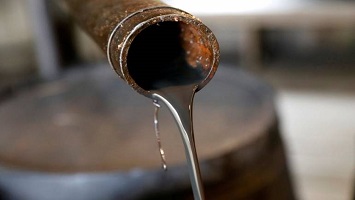Russia’s oil output may decline next year due to a global reduction pact, Energy Minister Alexander Novak said on Tuesday, possibly halting an uninterrupted decade-long run of growth.
The Organization of the Petroleum Exporting Countries and other large oil producers led by Russia agreed this month to resume cutting output as oil prices have plunged to less than $60 from more than $80 per barrel in October in a blow to many oil producing countries’ coffers.
Russia has pledged to cut its production by 228,000 barrels per day (bpd) from a record-high monthly average of 11.41 million bpd.
Novak said this reduction will be achieved during the first quarter as production has exceeded 11.42 million bpd in December so far.
Novak, speaking at a committee of the ruling United Russia party at the lower house of parliament, said Russian oil production is set to rise this year by around 200,000 bpd to 556 million tonnes.
Russia’s oil production has been on an uninterrupted upward trend, thanks to new oilfields coming onstream, after 2008 when it declined amid a world-wide financial crisis and plunging oil prices.
Novak said that the base case scenario for production next year is 555-556 million tonnes.
“This could be adjusted, taking into account the reduction (deal), I think by 3-4 million tonnes to the downside. But a lot will depend on what further action we will take,” he told reporters.
“It is hard to give a precise forecast, there are lots of uncertainties today.”
Global oil prices have shed more than 30 percent since early October due to swelling global inventories and slowing global economic growth.
A world away, sting lingers from Fed’s rate hikes
Novak said this month’s deal has prevented a deeper decline in prices.
“We are seeing the effect (from the deal) now. The prices did not fall to a very low level, which they could have reached had it not been for the deal,” Novak said.











